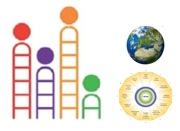
When it comes to understanding the growing numbers of complex challenging children and rising behavioural and mental health difficulties it matters what outcome measures we use.
The problem with most outcome measures currently in use in mental health services (such as SDQ and RCADS) is that they consist essentially of problem symptom checklists that are additionally - and often problematically - dominantly focussed on the child.
Symptom checklists can have a place as screening tools. It can be useful to think about the potential severity of given difficulties, but any educator will tell you that getting rid of problems or symptoms is much less effective than knowing what specific skills you want to increase and why.
A parallel problem can be found in schools where the key outcome measures used - excepting the Early Years Foundation Stage - are largely based on academic skills with a principle focus only on literacy and numeracy with little if any tracking of the issues that are relevant to mental health. This obsessive tracking of academic outcomes, in concert with neglect of child social-emotional developmental phases is wide of the mark of many of the key issues for too many struggling children. You are much less employable and much less likely to be a happy adult or skilled parent yourself if you can't manage relationships, than if you can't manage maths.
In the I Matter Project the starting points for a screening assessment are therefore
i) a brief skills-based checklist for child and adult called the I Can Control and Sooth Myself Checklist and
ii) a parent/adult confidence rating scale called the Parent/Adult Caring Confidence Checklist
We are also interested in understanding the extent to which difficulties have escalated, and the frequency, duration and intensity of current incidents. If we want to help complex children what we really want to know is how confident does the responsible adult feel in caring for this child? And is the child acquiring the key skills that we know are essential to mental health and wellbeing in relationships with peers and in later life?
If the child has significant challenges in managing the skills of the I Can Control and Sooth Myself Checklist, then in this project we consider it to be the adult responsibility (at home and at school) to look developmentally and sensitively at the environment (which includes them) to determine what needs to change. What needs to happen is to focus all efforts on helping the child to acquire these fundamentally important foundation skills.
The I Can Control Myself Checklist is therefore a simple checklist that we use with adults and with children that is designed to get everyone thinking about some of the fundamental skills that adults and children must be helped to master in order to be able to be successful in relationships with each other and with other people. This is regardless of the developmental difficulties or life event challenges that they may have had in early life. Society is not very forgiving - learning these skills is important.
The Parent/Adult Caring Confidence Scale is a simple checklist that we can use in relation to home or school to get a grasp on the adult's felt experience of being around the child. This is really important. Our children can only progress in their relationship skills if they have adults around them who want to engage with the child, and confidently do so. If an adult has very poor confidence, then if we want to make a longer term difference, the need fundamentally is to find ways to build adult confidence and competence first.
Many complex children, and sometimes their carers, have tremendous difficulties with the basic skills summarised in the I Can Control and Sooth Myself Checklist, but mastery of these skills is absolutely critical to wellbeing. The reviewing of the results from these screening tools therefore gives us an idea of where we are starting and of the journey that is left to be travelled. These quick checks highlight to us where there is need for further assessment and further education and training.
If you would like to sample the I Can Control Myself Checklist and get a quick result to start you thinking, then click here
The problem with most outcome measures currently in use in mental health services (such as SDQ and RCADS) is that they consist essentially of problem symptom checklists that are additionally - and often problematically - dominantly focussed on the child.
Symptom checklists can have a place as screening tools. It can be useful to think about the potential severity of given difficulties, but any educator will tell you that getting rid of problems or symptoms is much less effective than knowing what specific skills you want to increase and why.
A parallel problem can be found in schools where the key outcome measures used - excepting the Early Years Foundation Stage - are largely based on academic skills with a principle focus only on literacy and numeracy with little if any tracking of the issues that are relevant to mental health. This obsessive tracking of academic outcomes, in concert with neglect of child social-emotional developmental phases is wide of the mark of many of the key issues for too many struggling children. You are much less employable and much less likely to be a happy adult or skilled parent yourself if you can't manage relationships, than if you can't manage maths.
In the I Matter Project the starting points for a screening assessment are therefore
i) a brief skills-based checklist for child and adult called the I Can Control and Sooth Myself Checklist and
ii) a parent/adult confidence rating scale called the Parent/Adult Caring Confidence Checklist
We are also interested in understanding the extent to which difficulties have escalated, and the frequency, duration and intensity of current incidents. If we want to help complex children what we really want to know is how confident does the responsible adult feel in caring for this child? And is the child acquiring the key skills that we know are essential to mental health and wellbeing in relationships with peers and in later life?
If the child has significant challenges in managing the skills of the I Can Control and Sooth Myself Checklist, then in this project we consider it to be the adult responsibility (at home and at school) to look developmentally and sensitively at the environment (which includes them) to determine what needs to change. What needs to happen is to focus all efforts on helping the child to acquire these fundamentally important foundation skills.
The I Can Control Myself Checklist is therefore a simple checklist that we use with adults and with children that is designed to get everyone thinking about some of the fundamental skills that adults and children must be helped to master in order to be able to be successful in relationships with each other and with other people. This is regardless of the developmental difficulties or life event challenges that they may have had in early life. Society is not very forgiving - learning these skills is important.
The Parent/Adult Caring Confidence Scale is a simple checklist that we can use in relation to home or school to get a grasp on the adult's felt experience of being around the child. This is really important. Our children can only progress in their relationship skills if they have adults around them who want to engage with the child, and confidently do so. If an adult has very poor confidence, then if we want to make a longer term difference, the need fundamentally is to find ways to build adult confidence and competence first.
Many complex children, and sometimes their carers, have tremendous difficulties with the basic skills summarised in the I Can Control and Sooth Myself Checklist, but mastery of these skills is absolutely critical to wellbeing. The reviewing of the results from these screening tools therefore gives us an idea of where we are starting and of the journey that is left to be travelled. These quick checks highlight to us where there is need for further assessment and further education and training.
If you would like to sample the I Can Control Myself Checklist and get a quick result to start you thinking, then click here

Comments